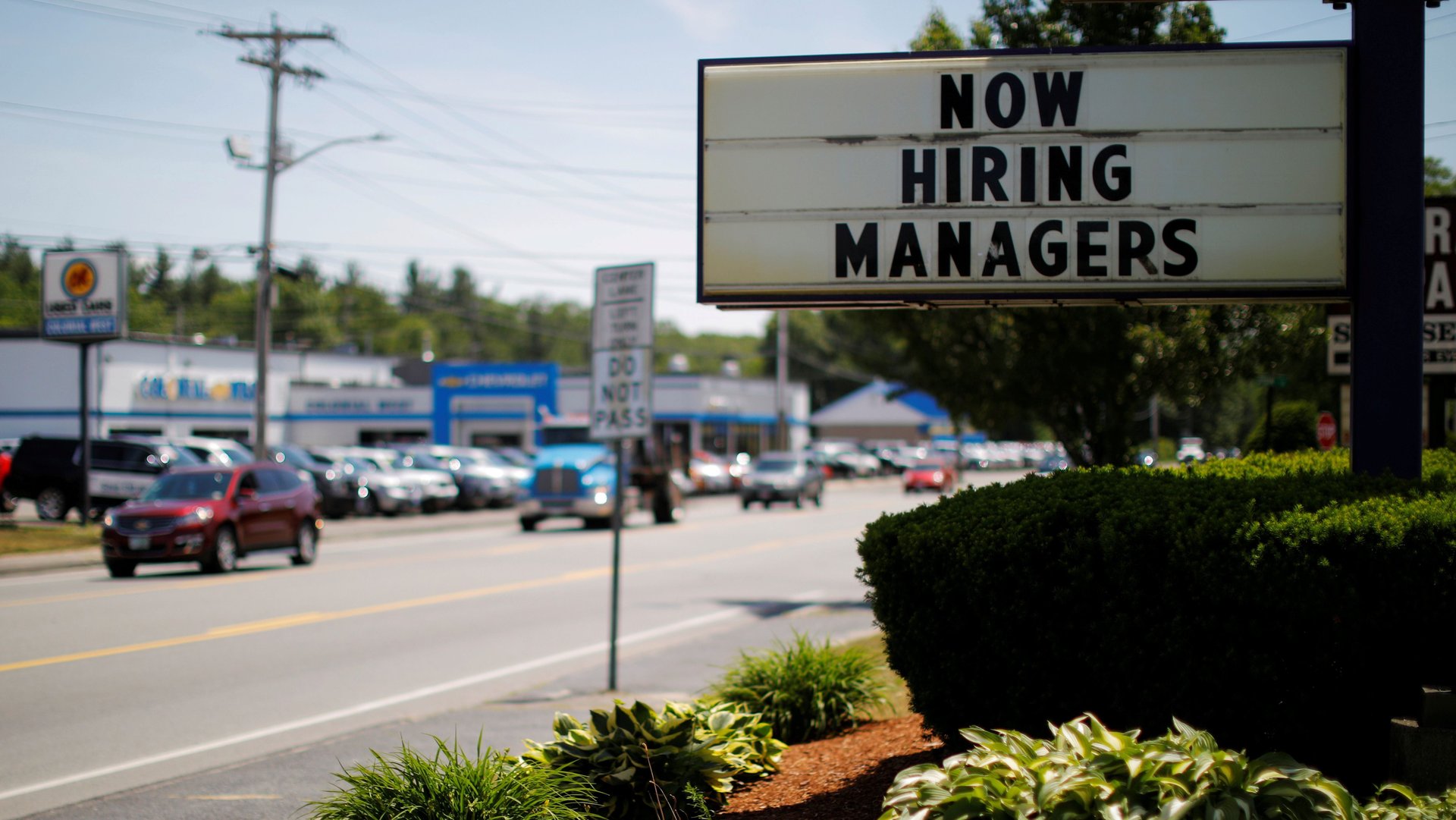The true cost of a bad manager
Bad managers have a knack for making everything worse.


Bad managers have a knack for making everything worse.
It’s not just that they’re unpleasant to be around, that they communicate poorly, don’t ask for feedback, and fail to give good feedback to others. They’re also very, very bad for business.
Humu, the workplace software company led by former Google HR chief Laszlo Bock, points out that bad managers cost US companies at least $960 billion per year. This is according to Gallup data from 2019—and it likely underestimates the true cost, Bock adds. (More recent data from Gallup’s 2021 State of the Global Workplace report (pdf) show that a lack of engagement—a result of bad management—costs the global economy $8.1 trillion in lost productivity each year.)
Whichever data point you pick, the costs add up. Here’s how:
Doing the math on the very worst managers
If you rank managers from worst to best on a scale of 1 to 10, a 1 will most assuredly cause people to quit, Bock said. That creates an immediate drop in productivity. Add to that the time it takes to search for a replacement and onboard a new staffer, and “you’re losing about three months of productivity,” said Bock.
What about mediocre managers?
Of course most managers aren’t that bad. Perhaps they’re a 2, 3, or 4 on the scale, said Bock.
It sounds counterintuitive, but staff on these poorly-managed teams are more likely to stay on the job, because they and their teammates “have a common enemy” in their manager, said Bock. It creates a bond that tethers them to one another.
But these teams are also less likely to give work their all. And that less-than-fully-engaged performance has effects that stretch far into the future. Bock says an employee’s performance can stay depressed for two job rotations after an experience with a poor manager. That can amount to three to five years of subpar performance.
Are there good managers?
They exist! But they seem to be increasingly overshadowed by problem bosses and challenging work environments. A report from Humu estimates that managers’ jobs overall became 10 times harder last year, and concludes that while “top managers have consistently stayed great,” bad managers got significantly worse.
Great managers, Humu finds, generally rank well on traits like authenticity, decision making, dependability, inclusion, fairness, feedback, and maintaining a growth mindset.
But even the finest managers shouldn’t be expected to demonstrate all of these traits all the time, Bock noted. Luckily, different teams have different needs at different times. And an important management skill at one company, say, Google, may be quite different from what’s critical at Microsoft or Fidelity, or the bakery down the street, Bock noted.
What all managers have in common though, good or bad, is the potential to impact employee performance for better or for worse.
Are you a good manager? These 10 questions will help you figure out the answer.